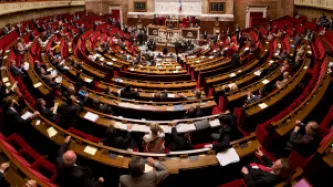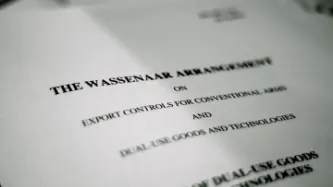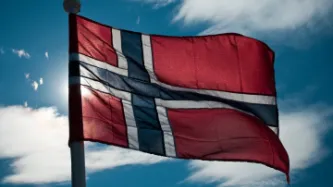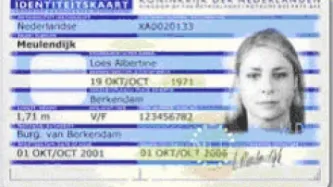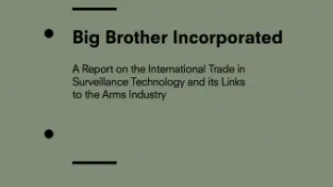Search
Content type: News & Analysis
NETMundial – a global conference initiated by the Brazilian government – has produced ‘The Multi-stakeholder Statement of São Paulo’, a Roadmap and Principles on internet governance that could herald new respect for the right to privacy online. However, the outcome document fails to adequately recognise the relationship between internet governance and mass surveillance, reflecting a larger problem that was present throughout the two-day meeting.
By the end of the conference, both the…
Content type: News & Analysis
In the late eighteenth century in Germany, ‘anthropologist’ Johann Blumenbach published a degenerative hypothesis that linked cranium and facial profiles to supposed character traits and accordingly divided human beings into five different races: the Caucasian, Mongolian, Malayan, Ethiopian, and American.1
In the 1870s, Alphonse Bertillon, a police officer in France, started a trend to identify criminals based on facial characteristics, alongside subsequent use of the camera to…
Content type: News & Analysis
In the same week that the Advocate General of the European Court of Justice labelled the retention of electronic communications data throughout Europe as a “serious interference with the right to privacy”, the French National Assembly has codified into law a suite of invasive and unrestrained surveillance powers, allowing an expanded range of government bodies invasive access to citizens electronic communications data and content and threatening the privacy rights of the French people.…
Content type: News & Analysis
What is the Wassenaar Arrangement?
The Wassenaar Arrangement on Export Controls for Conventional Arms and Dual-Use Goods and Technologies (the "Wassenaar Arrangement") is a multilateral export control regime in which 41 states participate.
The Wassenaar Arrangement was established on 12 July 1996 in Wassenaar, the Netherlands by 33 founding members to contribute to regional and international security and stability. It is the successor to COCOM, a NATO based…
Content type: News & Analysis
With the launch of the "Eyes Wide Open" project, Privacy International has put together a fact sheet about the secretive Five Eyes alliance. Consider this a guide to the secret surveillance alliance that has infiltrated every aspect of the modern global communications system.
Beginning in 1946, an alliance of five English-speaking countries (the US, the UK, Australia, Canada and New Zealand) developed a series of bilateral agreements over more than a decade that became known as the UKUSA…
Content type: News & Analysis
For nearly 30 years, the UK's wiretapping laws have been the subject of annual reports. Since 2002, they are available around the web (for now), but earlier than that, it is a rabbit warren of possible locations.
In practice, the reports are solely available from the Parliamentary Archives if and only if you are a member of an institution which has paid for access. Requesting a copy from elsewhere sends you to this destination.
The current Interception of Communications Commissioner didn't…
Content type: News & Analysis
Privacy International is pleased to announce the Surveillance Industry Index, the most comprehensive publicly available database on the private surveillance sector.
Over the last four years, Privacy International has been gathering information from various sources that details how the sector sells its technologies, what the technologies are capable of and in some cases, which governments a technology has been sold to. Through our collection of materials and brochures at surveillance trade…
Content type: News & Analysis
When a product line becomes engulfed in controversy, the PR team's first move is to distance the corporation from the damage. The surveillance market is not immune to this approach, so when companies products are found to be in use by repressive regimes, the decision many boards make is simply to sell off that technology. This increasingly repetitive narrative is failing to solve any of the problems inherent with the sale of surveillance technology and in fact, is creating more.
The …
Content type: News & Analysis
In our ongoing campaign to prevent the sale of surveillance technologies to repressive regimes, Privacy International today has filed a complaint with the South African body responsible for arms controls, asking for an investigation into South Africa-based surveillance company VASTech for the potential illegal export its technology to Libya.
In this case, Western-made surveillance technology was found by the Wall Street Journal when journalists entered the communications…
Content type: News & Analysis
It was only a year ago when the UK Home Office repeatedly made statements about how their capability to collect intelligence was degrading, and how new laws such as the Communications Data Bill were necessary to protect citizens.
In hindsight, given the revelations about the UK domestic mass surveillance programs, these once desperate cries for more crime- and terrorism-fighting tools now look like nothing more than attempts to illegitimately spy more on all citizens. Quotes from those debates…
Content type: News & Analysis
Trade has often been a positive driver in encouraging countries to adopt data protection laws, to ensure compliance and ability to conduct business with the European Union and other privacy-respecting partners. However, when free trade agreements are negotiated in secret and influenced by powerful business interests, the result is a severe watering down of existing privacy protections.
There is a high risk of this happening in the free trade negotiations between the European Union…
Content type: Press release
Google's latest Transparency Report, released at 3pm GMT this afternoon, shows that requests by European governments for the browsing history, email communications, documents and IP addresses of Google's users have skyrocketed since the Transparency Report was launched three years ago. Countries in the European Union made 7,254 requests about 9,240 users or accounts between July and December 2012, averaging over 1,200 requests a month. This represents over a third of all requests made by…
Content type: News & Analysis
The social news website MiroirSocial.com confirmed yesterday that the prominent French technology firm Bull SA has sold its controversial mass surveillance "Eagle" system to Stéphane Salies, one of its chief designers and an ex-director of Bull. The surveillance software was previously manufactured and supplied by Bull’s subsidiary, Amesys, a company that is currently the subject of a judicial enquiry in Paris following a legal complaint filed by two human rights organisations, the…
Content type: Press release
In his response to the third report from the Foreign Affairs Committee Session 2012-13, Foreign Secretary William Hague expressed for the first time the government's firm commitment to putting in place new export controls on "telecommunications equipment for which there is a reasonable expectation that it might be used to restrict freedom of expression on the internet". He added that the government was committed to "working with international partners through the mechanism of the Wassenaar…
Content type: News & Analysis
An astonishing 13-page investigation by Osman Kibar at Dagens Næringsliv has revealed that Norway has invested over $2 billion in 15 companies that manufacture and sell surveillance technologies - and that the government has no plans to divest investments in companies that are complicit in human rights abuses abroad.
The Norwegian national pension fund (commonly referred to as the "oil fund") is the world's largest sovereign wealth fund. The author of the Dagens Næringsliv…
Content type: News & Analysis
Last year, Index on Censorship published an interview with Google’s chief legal officer and senior vice president David Drummond. The company was still reeling from the aftermath of the news that an attack had been launched on Gmail from China. Drummond proposed that free speech needed to be part of the international agenda at multilateral and bilateral trade discussions, just like piracy. 'Western governments whose economies certainly benefit from the internet sector should make this happen,'…
Content type: News & Analysis
An international alliance of organisations and individuals from 27 countries has lodged a petition calling on the Council of Europe to start an indepth survey on the collection and storage of biometric data by member states.
European governments are increasingly demanding storage of biometric data (fingerprints and facial scans) from individuals. These include storage on contactless 'RFID' chips in passports and/or ID cards. Some are going even further by implementing…
Content type: News & Analysis
Together with a coalition with 18 Japanese rights groups, Privacy International today delivered a letter to the Japanese Minister of Justice to protest against the implementation of a fingerprinting system and face-scanning system at its borders. All visitors and many foreign residents to Japan will be fingerprinted under this plan. Our letter to the Minister is endorsed by 68 organisations from 30 countries. In our letter, we show that there are numerous problems with the government's plans.…
Content type: News & Analysis
Privacy International and the American Civil Liberties Union have appealed to the Council of the European Union, the European Commission, the European Parliament, and privacy commissioners in 31 countries across Europe to repeal the agreement between the EU and the US on passenger data transfers. We argue that, with the recent disclosure of the 'Automated Targeting System' being used by the US Department of Homeland Security, the US has violated both American law and the agreement with the EU…
Content type: Long Read
On June 22-23 2006 the New York Times ran a story uncovering an international financial surveillance programme run by the Bush Administration. In essence the Bush Administration is getting access to international transfer data and storing this in databases at the Treasury Department and/or CIA for access to investigate terrorist activity.
There are a number of inconsistencies in the accounts so far:
The U.S. claims that this is a narrowly focused programme that is compliant with the law,…
Content type: News & Analysis
The UK currently maintains the largest DNA Database in the world and is encouraging other governments to implement similar systems in their respective countries. Using international organisations such as Interpol, participant governments will be able to share and exchange the DNA profiles of their citizens subject to vague legislative provisions, such as 'the interests of crime detection and prevention'.
Background
The successful prosecution of a serial sex offender in 2004 led to…
Content type: News & Analysis
The French government is considering the implementation of a new project, Project INES (Identite National Electronique Securisee), which will involve a system very similar to the one proposed in the UK. The French are even using similar statements, such as 'international obligations', 'terrorism', and concern regarding 'identity theft'. The Forum for Civil Liberties on the Internet ("Le Forum des droits sur l'internet) was asked by then Minister of the Interior Dominique de Villepin to conduct…
Content type: News & Analysis
The below letter was addresses to UK Prime Minister Tony Blair, Viviane Reding (Commissioner for Information Society and Media) and Franco Frattini (Vice President and Commissioner for Justice, Freedom and Security).
Your excellencies,
On behalf of European Digital Rights and Privacy International we would like to express our sadness and anger at the terrorist attacks in London on 7 July. We understand the difficulty of ensuring the daily safety of all citizens and residents…
Content type: News & Analysis
We the undersigned are calling on you to reject the 'Draft Council Regulation on standards for security features and biometrics in passports and travel documents issued by Member States'. This is an unnecessary and rushed policy that will have hazardous effects on Europeans' right to privacy. This policy process requires additional oversight, and the eventual systems established will require significant controls and a strong legal framework to ensure that this is a proportionate response to the…
Content type: Press release
The global watchdog Privacy International has today simultaneously filed complaints against Google's controversial Gmail service with privacy regulators in sixteen countries.
The move creates Google's biggest challenge yet in the short but turbulent public debate over its new email service.
Complaints have been filed with the privacy and data protection regulators of France, Germany, the Netherlands, Greece, Italy, Spain, Czech Republic, Belgium, Denmark, Sweden, Ireland, Portugal, Poland,…
Content type: News & Analysis
To the participants of the International Civil Aviation Organization 12th Session of the Facilitation Division,
We are writing to you on behalf of a wide range of human rights and civil liberties organizations to express our concerns regarding a number of decisions emerging from your conferences and their likely effects on privacy and civil liberties. We are particularly worried about your plans requiring passports and other travel documents to contain biometrics and remotely readable ‘contact…
Content type: News & Analysis
Privacy International is writing this Open Letter to Members of both Chambers of the Netherlands Parliament to express our deep concern over Justice Minister Donner's proposed 'Wet op de uitgebreide identificatieplicht'. We believe these requirements will violate the European Convention on Human Rights and the UN Convention on the Rights of the Child.
By way of introduction, Privacy International (PI) is a human rights group formed in 1990 as a watchdog on surveillance by governments and…
Content type: News & Analysis
The French Socialist Party suffered a resounding defeat in parlimentary elections on March 21st and 28th, in part due to a wiretapping scandal that broke a week before the elections. Results showed that they lost over 200 seats in the Parliment and became the minority party. Socialist President Francois Mitterrand will remain in office but is expected to face a tough election in 1994.
The scandal emerged after reports and transcripts were leaked to Paris Daily Liberation, showing that a…
Content type: Report
This report presents a detailed analysis of the international trade in surveillance technology. Its’ primary concern is the ow of sophisticated computer-based technology from developed countries to developing countries – and particularly to non-democratic regimes. It is in this environment where surveillance technologies become technologies of political control.
Surveillance technologies can be de ned as technologies which can monitor, track and assess the movements, activities and…
Content type:
… Name of case: Bodinier and others v France Court: European Court of Human Rights Applications … September 2021, PI intervened in the case of Bodinier ao v France before the European Court of Human Rights. The …


